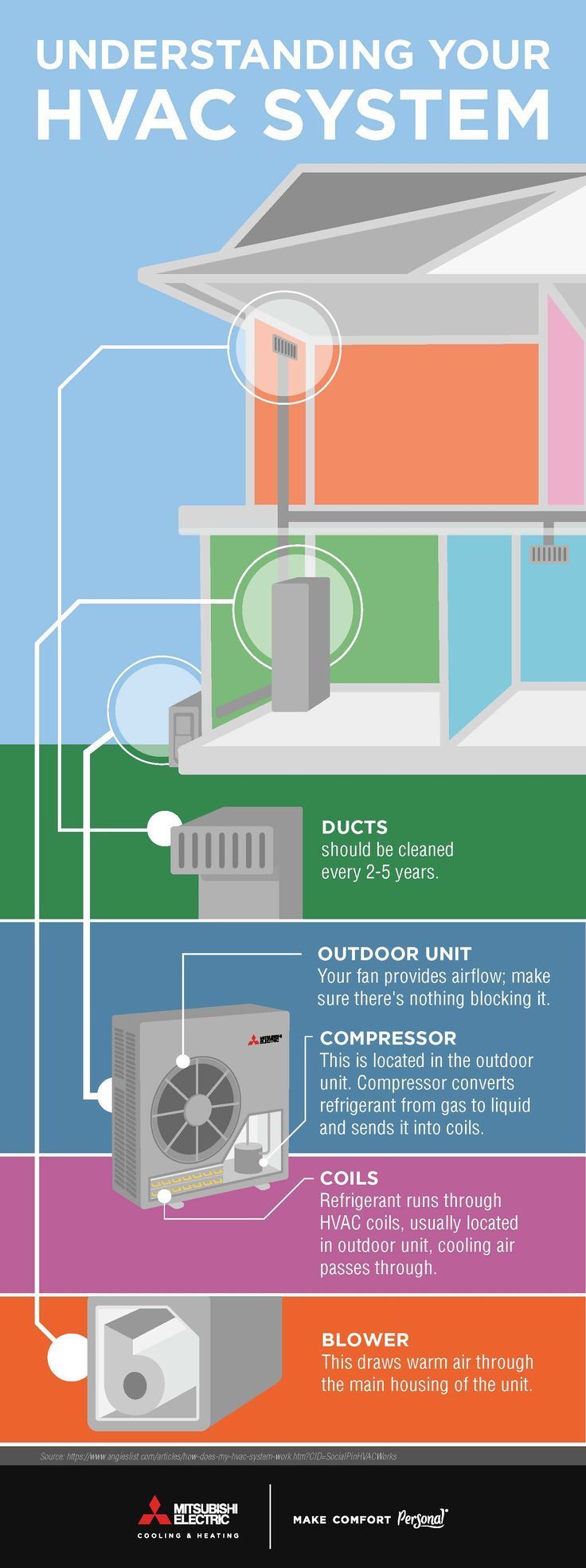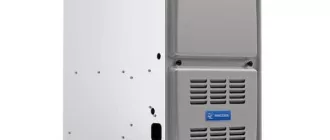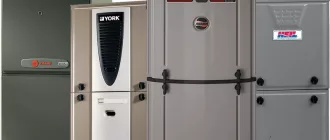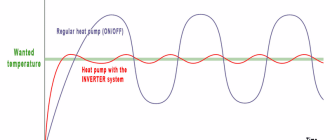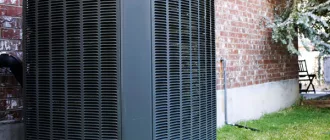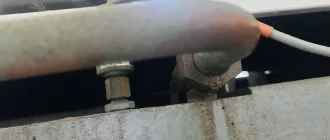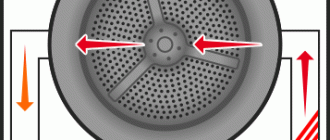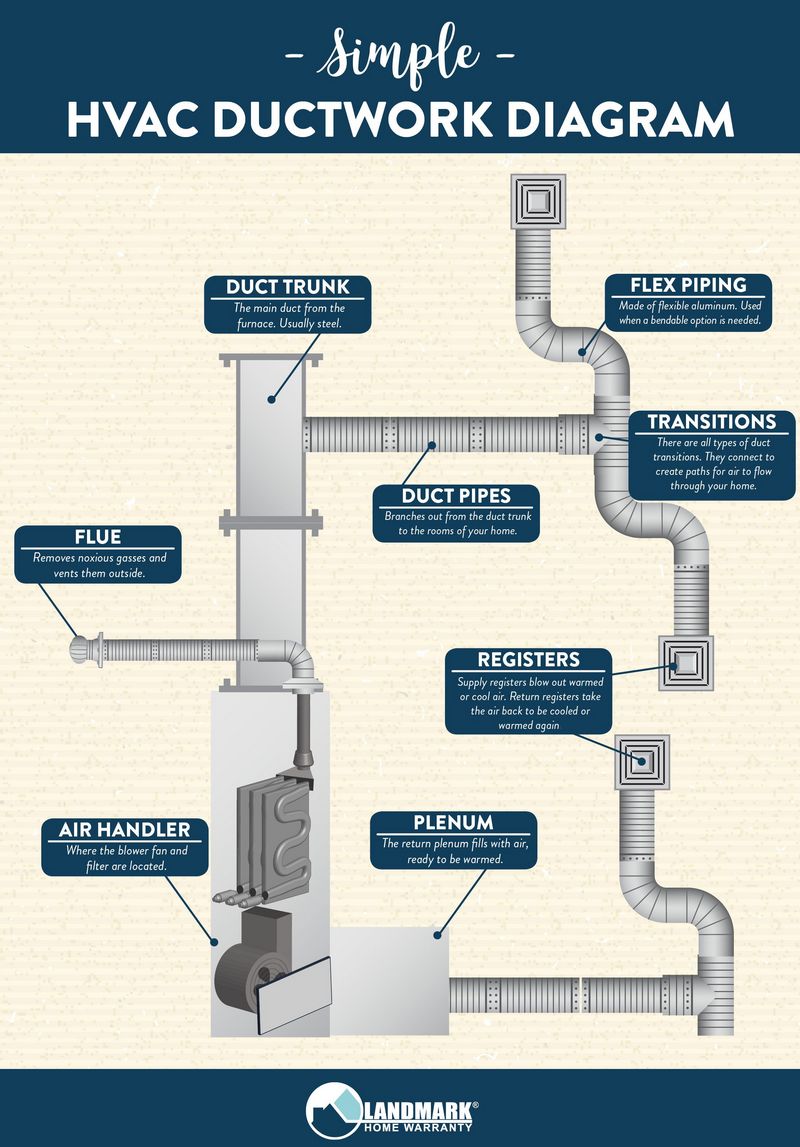
Understanding the Key Components of Your HVAC System: Building a Foundation for Home Comfort
When it comes to creating a comfortable home environment, it’s important to have a solid understanding of your HVAC system. HVAC, which stands for heating, ventilation, and air conditioning, is the foundation on which home comfort is built. Without a properly functioning HVAC system, maintaining a comfortable temperature and ensuring good indoor air quality can become a challenge.
There are several key pillars of home comfort that rely on your HVAC system. The heating pillar ensures that your home stays warm during the colder months, while the ventilation pillar ensures that fresh air is circulated throughout your living spaces. The air conditioning pillar is responsible for keeping your home cool during hot summer days.
Understanding your HVAC system involves knowing how each of these pillars works together. For example, the system relies on a network of ducts to distribute warm or cool air throughout your home. It also relies on filters to remove dust, allergens, and other particles from the air, improving indoor air quality. By understanding these components, you can better maintain and troubleshoot your HVAC system.
Overall, having a strong understanding of your HVAC system is essential for creating a comfortable and healthy home environment. It allows you to make informed decisions about maintenance, repairs, and upgrades, ensuring that your system continues to provide reliable heating, ventilation, and air conditioning for years to come.
The Basics of HVAC Systems
An essential part of understanding home comfort is having a good grasp of how your HVAC system works. HVAC stands for heating, ventilation, and air conditioning. This system is responsible for maintaining a comfortable temperature and air quality inside your home. It is composed of various components that work together to provide you with the desired indoor environment.
The pillars of a typical HVAC system include:
| Heating | The heating component of your HVAC system is responsible for keeping your home warm during colder months. It can be powered by electricity, natural gas, oil, or other fuel sources. |
| Ventilation | Ventilation refers to the process of exchanging indoor and outdoor air to maintain air quality. It involves removing stale air and introducing fresh air into your home. |
| Air Conditioning | The air conditioning aspect of your HVAC system helps to cool down your home during hot summer days. It works by removing heat and humidity from the indoor air, providing a comfortable environment. |
Understanding how these components work together can help you troubleshoot any issues that may arise and ensure optimal performance of your HVAC system. Regular maintenance and proper usage are also important to keep your HVAC system running efficiently and prolong its lifespan.
By gaining an understanding of the basics of HVAC systems, you can make informed decisions about your home comfort and ensure a pleasant indoor environment year-round.
Choosing the Right HVAC System
When it comes to the comfort and understanding of your home, one of the key pillars is ensuring that you have the right HVAC system in place. HVAC, which stands for Heating, Ventilation, and Air Conditioning, is responsible for regulating the temperature, humidity, and air quality in your home.
Choosing the right HVAC system is crucial in order to maintain a comfortable and healthy living environment. There are a few factors to consider when making this decision:
1. Size: It’s important to choose an HVAC system that is properly sized for your home. An undersized system will struggle to keep your home cool or warm, while an oversized system will lead to excessive energy consumption and poor humidity control.
2. Efficiency: Look for HVAC systems that have high energy efficiency ratings. Energy-efficient systems can help you save money on your utility bills and reduce your carbon footprint.
3. Type: There are various types of HVAC systems available, including central air conditioning, heat pumps, and ductless mini-split systems. Consider the specific needs of your home and choose a system that best fits your requirements.
4. Features: Different HVAC systems offer different features, such as programmable thermostats, zoning capabilities, and air purifiers. Consider which features are important to you and choose a system that provides them.
5. Maintenance: HVAC systems require regular maintenance to ensure optimal performance and longevity. Consider the maintenance requirements of different systems and choose one that you are comfortable with.
Choosing the right HVAC system is an important decision that can greatly impact the comfort and energy efficiency of your home. By considering factors such as size, efficiency, type, features, and maintenance, you can make an informed choice that will meet your home’s unique needs.
The Role of Air Conditioning
Air conditioning plays a crucial role in maintaining the comfort of a home. As one of the pillars of the HVAC system, it is responsible for controlling the temperature and humidity levels, creating a pleasant environment for occupants.
Understanding how air conditioning works is essential for homeowners, as it allows them to optimize their overall home comfort. The HVAC system utilizes refrigerant to absorb heat from the indoor air and transfer it outside, resulting in a cooling effect. This process helps to maintain a comfortable temperature, especially during hot summer months.
In addition to temperature control, air conditioning also helps to reduce humidity levels. High humidity can make a home feel stuffy and uncomfortable. By removing excess moisture from the air, air conditioning helps to create a more enjoyable living environment.
Proper maintenance and regular servicing of air conditioning units are essential to ensure optimal performance and energy efficiency. Homeowners should change air filters regularly, keep the system clean, and schedule professional inspections to identify any potential issues.
Overall, air conditioning plays a vital role in the comfort of a home. Understanding its function and importance can help homeowners create a more comfortable and pleasant living environment for themselves and their families.
The Importance of Heating
Understanding the importance of heating in your home is crucial for maintaining comfort throughout the year. Your HVAC system plays a significant role in providing warmth and creating a cozy atmosphere for your living space.
During the colder months, a properly functioning heating system is essential for keeping your home at a comfortable temperature. It not only provides warmth but also helps to regulate humidity levels, preventing the air from becoming too dry and uncomfortable.
Without a reliable heating system, your home could be subjected to chilly drafts, uneven temperatures, and an overall uncomfortable living environment. It can also impact your health and well-being, as exposure to cold temperatures for prolonged periods can lead to respiratory issues and other health concerns.
Proper understanding of your heating system can ensure that it operates efficiently, reducing energy waste and saving you money on utility bills. Regular maintenance and timely repairs can help to extend the lifespan of your HVAC system, keeping it in optimal condition and avoiding costly replacements.
In conclusion, heating is an integral part of your HVAC system and plays a vital role in providing comfort and maintaining a cozy home environment. By understanding the importance of heating and properly maintaining your system, you can ensure a warm and comfortable home all year round.
Ventilation and Indoor Air Quality
When it comes to the comfort and well-being of your home, ventilation and indoor air quality play a crucial role. Your HVAC system is one of the pillars of achieving a comfortable and healthy living environment.
Ventilation involves the process of exchanging indoor and outdoor air to improve air quality. It helps remove pollutants, odors, and excess humidity from your home. Without proper ventilation, your indoor air can become stagnant, leading to a buildup of pollutants and allergens.
An efficient HVAC system ensures that your home has proper ventilation, which is vital for maintaining good indoor air quality. The system uses fans and ductwork to circulate the air and remove impurities. It also helps regulate temperature and humidity levels, creating a more comfortable living space.
Indoor air quality refers to the cleanliness and freshness of the air inside your home. Poor indoor air quality can cause health issues, including respiratory problems, allergies, and asthma. It can also affect your overall comfort and well-being.
Your HVAC system plays a crucial role in maintaining good indoor air quality. It filters the air, removing dust, pollen, and other allergens. It also helps control the level of humidity, preventing the growth of mold and bacteria.
Regular maintenance of your HVAC system, including cleaning or replacing filters, is essential for ensuring optimal indoor air quality. Additionally, proper ventilation and regular air circulation can help improve air quality and create a healthier living environment.
In conclusion, ventilation and indoor air quality are important considerations for maintaining comfort and well-being in your home. Your HVAC system is a key component in achieving proper ventilation and ensuring good indoor air quality. Regular maintenance and attention to these aspects will help create a comfortable and healthy living environment for you and your family.
Energy Efficiency in HVAC Systems
When it comes to the comfort of your home, understanding your HVAC system is crucial. One important aspect to consider is energy efficiency. An energy-efficient HVAC system not only helps reduce your environmental impact, but it also saves you money in the long run.
Here are some key factors that contribute to energy efficiency in HVAC systems:
- Proper system sizing: An HVAC system that is too large or too small for your home will not operate efficiently. It is important to have a professional assess your home’s heating and cooling needs and install an appropriately sized system.
- Regular maintenance: Regular maintenance keeps your HVAC system running smoothly and efficiently. This includes changing air filters, cleaning coils, and checking for any leaks or ductwork issues.
- Programmable thermostat: A programmable thermostat allows you to set different temperatures for different times of the day. This helps optimize energy usage by adjusting the temperature when no one is home or during sleeping hours.
- Insulation: Proper insulation in your home helps reduce heat transfer, allowing your HVAC system to work less to maintain the desired temperature.
- Sealing air leaks: Air leaks in your home can cause your HVAC system to work harder to heat or cool your space. Sealing air leaks helps prevent energy waste and improves the overall efficiency of your system.
- High-efficiency equipment: Investing in high-efficiency HVAC equipment, such as ENERGY STAR certified systems, can significantly reduce your energy consumption and lower your utility bills.
By implementing these energy-efficient practices, you can ensure that your HVAC system operates at its best, providing optimal comfort for your home while minimizing energy usage.
The Significance of Regular Maintenance
Regular maintenance plays a vital role in the overall functionality and longevity of your HVAC system. It is one of the pillars of home comfort and understanding the importance of this routine upkeep is crucial for homeowners.
An HVAC system consists of various components that work together to provide heating, ventilation, and air conditioning. These components include the furnace, air conditioner, thermostat, ductwork, and more. Without regular maintenance, these components can deteriorate over time, leading to decreased efficiency, higher energy bills, and potential breakdowns.
By scheduling regular maintenance for your HVAC system, you can ensure that it operates at peak performance. During a maintenance visit, a professional technician will thoroughly inspect each component, clean or replace filters, lubricate moving parts, and detect any potential issues.
| Benefits of Regular Maintenance: |
| 1. Improved Efficiency |
| 2. Energy Savings |
| 3. Increased Lifespan |
| 4. Reduced Costs |
Regular maintenance helps to improve the efficiency of your HVAC system. It ensures that the system is clean and free from any debris or buildup, allowing it to function optimally. This, in turn, leads to reduced energy consumption and lower utility bills.
Furthermore, routine maintenance helps to increase the lifespan of your HVAC system. By addressing any issues or potential problems early on, you can prevent major breakdowns and prolong the overall longevity of your system. This saves you the hassle and expense of having to replace your HVAC system prematurely.
Lastly, regular maintenance helps to reduce costs associated with repairs. By catching and addressing small issues before they become major problems, you can avoid costly emergency repairs or replacements.
In conclusion, regular maintenance is an essential aspect of maintaining the efficiency, lifespan, and functionality of your HVAC system. By investing in routine upkeep, you can enjoy a comfortable home environment and avoid unnecessary expenses in the long run.
Common HVAC Problems and Solutions
When it comes to the comfort of your home, your HVAC system plays a crucial role. However, like any other mechanical system, it is not immune to problems. Understanding common HVAC problems and their solutions can help you maintain a pleasant indoor environment and prevent any major issues. Here are some of the most common HVAC problems and their solutions:
1. Air conditioning not cooling enough
If your air conditioning system is not cooling enough, there could be a few possible causes. First, check if the thermostat is set to the correct temperature. If it is, make sure the air filter is clean, as a clogged air filter can restrict airflow. If the problem persists, it may be a refrigerant leak or a faulty compressor, and you should contact a professional HVAC technician.
2. Heating system not warming up
If your heating system is not warming up your home, the thermostat could be set too low. Make sure to adjust it to the desired temperature and check if the system turns on. If the heating system still does not work, it could be due to a malfunctioning pilot light, a faulty ignition system, or a problem with the blower motor. In these cases, it is best to contact an HVAC technician for further inspection and repair.
3. Poor indoor air quality
Indoor air quality is vital for your comfort and health. If you notice excessive dust, pollen, or unpleasant odors in your home, it could be due to poor HVAC system maintenance or issues with the air filters. Regularly replacing or cleaning the air filters can help improve indoor air quality. Additionally, installing air purification systems or using indoor plants can further enhance the quality of the air you breathe.
4. Noisy HVAC system
If your HVAC system is making unusual noises, such as grinding, screeching, or rattling, it could indicate a problem. Loose or worn-out parts, such as belts or bearings, could be causing the noise. It is recommended to have an HVAC technician inspect and repair any noisy components to prevent further damage and ensure the system operates quietly.
5. Uneven temperature distribution
If you notice significant temperature variations throughout your home, it could be due to an unbalanced HVAC system. Improperly sized or placed air ducts, blocked vents, or leaky ducts can cause uneven temperature distribution. Having a professional HVAC technician inspect and potentially reconfigure your ductwork can help resolve this issue and provide more consistent and comfortable temperatures throughout your home.
By understanding these common HVAC problems and their solutions, you can effectively maintain and troubleshoot your HVAC system. Regular maintenance and prompt repairs will help ensure the continued comfort and efficiency of your home’s HVAC system.
Understanding Thermostats
Thermostats are a crucial component of every HVAC system. They play a significant role in maintaining the desired temperature in our homes, making them an essential part of our home comfort. Understanding how thermostats work and how to use them effectively is one of the pillars of a well-functioning HVAC system.
Thermostats are responsible for monitoring and controlling the temperature of your home. They measure the indoor temperature and provide signals to your HVAC system to turn on or off to maintain the desired temperature. By setting the thermostat to your preferred temperature, you can ensure that your home is always comfortable.
There are different types of thermostats available in the market today. The most common types include manual thermostats, programmable thermostats, and smart thermostats. Each type offers different features and benefits, allowing you to choose the one that best suits your needs and lifestyle.
Manual thermostats require manual adjustment to set the desired temperature. They are simple and easy to use but do not offer any advanced features. Programmable thermostats, on the other hand, allow you to set a schedule for different temperature settings. This feature helps you save energy by reducing heating or cooling when you are away from home.
Smart thermostats take programmable thermostats to the next level. They can be controlled remotely through a smartphone or other smart devices. Smart thermostats learn your heating and cooling preferences over time and can adjust the temperature automatically to maximize energy efficiency and comfort. They also provide energy usage reports and can be integrated with home automation systems.
- Manual thermostats are simple and easy to use
- Programmable thermostats allow you to set a schedule for temperature changes
- Smart thermostats can be controlled remotely and offer advanced features
- Choosing the right thermostat for your needs and lifestyle is crucial
Understanding thermostats and how to use them effectively is essential for maintaining a comfortable and energy-efficient home. Whether you opt for a manual, programmable, or smart thermostat, taking the time to set the temperature according to your preferences can make a significant difference in your home comfort and energy savings.
The Benefits of HVAC Zoning
One of the key pillars of a home comfort system is the HVAC (Heating, Ventilation, and Air Conditioning) system. Understanding how your HVAC system works is crucial in creating a comfortable living environment. One aspect of HVAC system design that shouldn’t be overlooked is zoning.
HVAC zoning allows you to divide your home into different climate zones, each with its own thermostat and independent temperature control. This means you can have different temperatures in different areas of your home, depending on your preferences and needs.
The benefits of HVAC zoning are numerous. Firstly, it enhances comfort by allowing you to customize the temperature in each zone according to individual preferences. For example, if someone in your household likes their bedroom to be cooler while you prefer a warmer living room, zoning allows you to achieve both without compromising anyone’s comfort.
Secondly, HVAC zoning can save energy and reduce utility costs. With traditional heating and cooling systems, you have to heat or cool your entire home, even if you only use certain spaces. Zoning allows you to target specific areas, so you’re not wasting energy on rooms that are not in use. This can lead to significant energy savings over time.
Furthermore, zoning can help improve indoor air quality. By controlling the temperature in different zones, you can also regulate the airflow and ventilation. This can prevent the spread of allergens and maintain a healthy living environment.
In conclusion, HVAC zoning is a beneficial feature that enhances comfort, saves energy, and promotes indoor air quality. It is an important aspect to consider when designing or upgrading your home’s HVAC system.
Ductwork: The Hidden Hero of HVAC Systems
Without proper ductwork, your HVAC system would struggle to distribute the conditioned air effectively. The ducts act as pathways, allowing the air to flow from the heating or cooling unit to various rooms in your house. They ensure that every corner of your home receives the desired comfort.
Understanding the basics of how your ductwork operates can help you identify and address potential issues. Leaks or gaps in the ducts can lead to energy inefficiency, as conditioned air escapes before reaching its intended destination. Regular inspection and maintenance of your ductwork can prevent such problems, ensuring that your HVAC system works optimally.
Additionally, the design and size of your ductwork play a significant role in the overall performance of your HVAC system. Properly sized and sealed ducts can enhance airflow, reduce noise levels, and improve energy efficiency. It’s crucial to consult with a professional HVAC technician to ensure that your ductwork meets industry standards and is compatible with your heating and cooling system.
Even though ductwork operates behind the scenes, its impact on your home’s comfort and overall HVAC system cannot be overstated. By understanding its importance and taking proactive measures to maintain and optimize your ductwork, you can ensure that your home remains comfortable throughout the year.
In conclusion, ductwork is the hidden hero of HVAC systems. It’s essential to recognize its significance in maintaining comfort at home. Regular maintenance and inspection of your ductwork can prevent energy inefficiency and optimize the performance of your HVAC system. Consult a professional HVAC technician to ensure that your ductwork meets industry standards for maximum effectiveness.
The Impact of Insulation on Home Comfort
When it comes to your HVAC system, one of the key pillars of home comfort is insulation. Insulation plays a crucial role in keeping your home at a comfortable temperature and ensuring energy efficiency.
Insulation acts as a barrier between your home and the outside environment, helping to prevent heat loss in the winter and heat gain in the summer. Without proper insulation, your HVAC system will have to work harder to maintain a consistent indoor temperature, which can result in higher energy bills and decreased comfort.
Proper insulation also helps to reduce noise from outside, creating a quieter and more peaceful living environment. Whether it’s traffic noise, neighborhood sounds, or even loud HVAC equipment, insulation helps to dampen the noise and create a more serene atmosphere inside your home.
In addition to temperature control and noise reduction, insulation also plays a role in improving indoor air quality. By creating a sealed environment, insulation helps to keep out pollutants, allergens, and other irritants that can affect the air you breathe. This is especially important for those with allergies or respiratory issues, as insulation can help to create a healthier and more comfortable living space.
Insulation comes in many forms, including fiberglass, foam, and cellulose. It can be installed in walls, attics, floors, and ceilings to maximize its effectiveness. The level of insulation needed varies depending on your climate and the specific needs of your home, so it’s important to consult with an HVAC professional to determine the best insulation solution for your home.
So, if you want to improve your home comfort and increase energy efficiency, don’t forget about the impact of insulation. It’s one of the essential pillars of understanding your HVAC system and creating a comfortable living environment for you and your family.
Smart Home Integration with HVAC Systems
Smart home technology has revolutionized the way we control and interact with our HVAC systems. By integrating your HVAC system into your smart home ecosystem, you can experience a new level of comfort and convenience.
With smart home integration, you can use voice commands or your smartphone to adjust the temperature, control the humidity levels, and even schedule your HVAC system to turn on and off at specific times. This level of control allows you to create the perfect environment for your home while also saving money on energy bills.
By connecting your HVAC system to a smart home hub, you can also take advantage of other features such as geofencing. This technology detects when you’re away from home and automatically adjusts the temperature to save energy. When you’re on your way back, it can start cooling or heating your home to ensure it’s comfortable when you arrive.
In addition to convenience, smart home integration with HVAC systems also provides valuable insights into your home’s energy usage. With the help of smart thermostats and energy monitoring devices, you can track your energy consumption in real-time and identify ways to make your home more energy-efficient. This not only benefits the environment but also reduces your energy costs.
Furthermore, smart home integration allows for seamless integration with other smart devices in your home. For example, you can connect your HVAC system to your smart lighting system, so the lights automatically turn on and off based on your presence or schedule. This level of automation enhances both comfort and energy efficiency.
In conclusion, smart home integration with HVAC systems is a game-changer. It brings together the pillars of home comfort and convenience by allowing you to control and monitor your HVAC system with ease. With the added benefits of energy savings and integration with other smart devices, it’s no wonder that smart home integration is becoming increasingly popular.
Q&A:
What is an HVAC system?
An HVAC system is an acronym that stands for Heating, Ventilation, and Air Conditioning. It refers to the system in your home or building that controls the temperature, humidity, and air quality. It includes components such as the furnace, air conditioner, ductwork, and thermostat.
How often should I change the air filter in my HVAC system?
It is recommended to change the air filter in your HVAC system every 1 to 3 months, depending on the type of filter and the air quality in your home. Regularly changing the filter helps to maintain good airflow and keep the system running efficiently.
What are the signs that my HVAC system needs repairs?
There are several signs that your HVAC system may need repairs, including: inconsistent temperatures, strange noises coming from the unit, increased energy bills, frequent cycling on and off, and poor air quality. If you notice any of these signs, it’s best to contact a professional HVAC technician for an inspection.
How can I improve the energy efficiency of my HVAC system?
There are a few ways to improve the energy efficiency of your HVAC system, including: regularly changing the air filter, sealing any air leaks in your home, using a programmable thermostat to adjust the temperature when you’re away, and scheduling regular maintenance for your system. These steps can help lower your energy bills and reduce your carbon footprint.
What is the average lifespan of an HVAC system?
The average lifespan of an HVAC system is around 15 to 20 years, although this can vary depending on the quality of the system, how well it is maintained, and other factors. Regular maintenance and prompt repairs can help extend the lifespan of your HVAC system.
What is an HVAC system and how does it work?
An HVAC (heating, ventilation, and air conditioning) system is a system that provides heating and cooling to a building. It works by using a combination of mechanical, electrical, and chemical processes to control the temperature, humidity, and air quality of a space.
What are the main components of an HVAC system?
The main components of an HVAC system include a furnace or boiler, an air conditioner or heat pump, ductwork, vents, and a thermostat. The furnace or boiler is responsible for heating the air, while the air conditioner or heat pump cools the air. Ductwork distributes the air throughout the building, vents allow air to enter and exit the system, and the thermostat controls the temperature.

